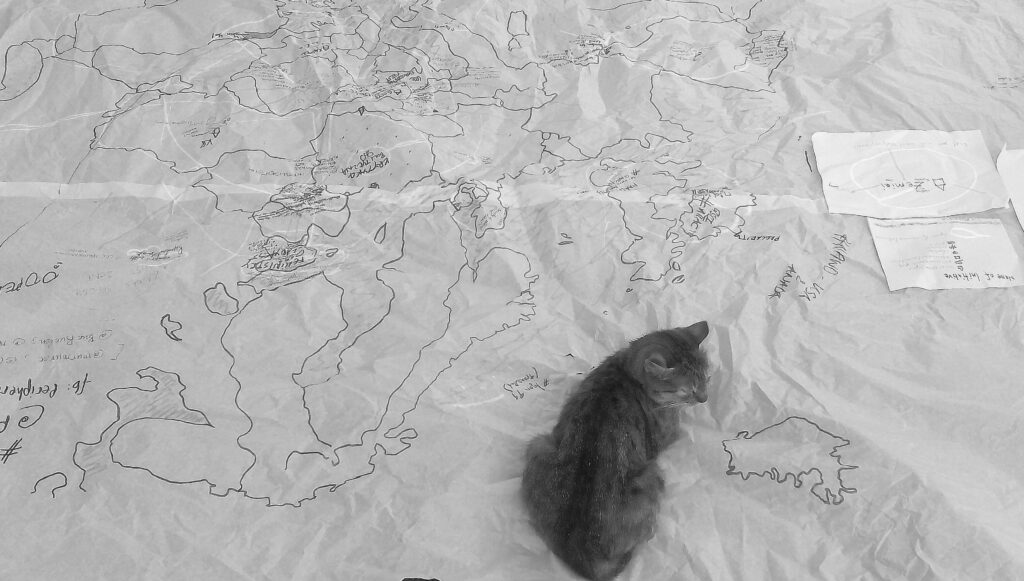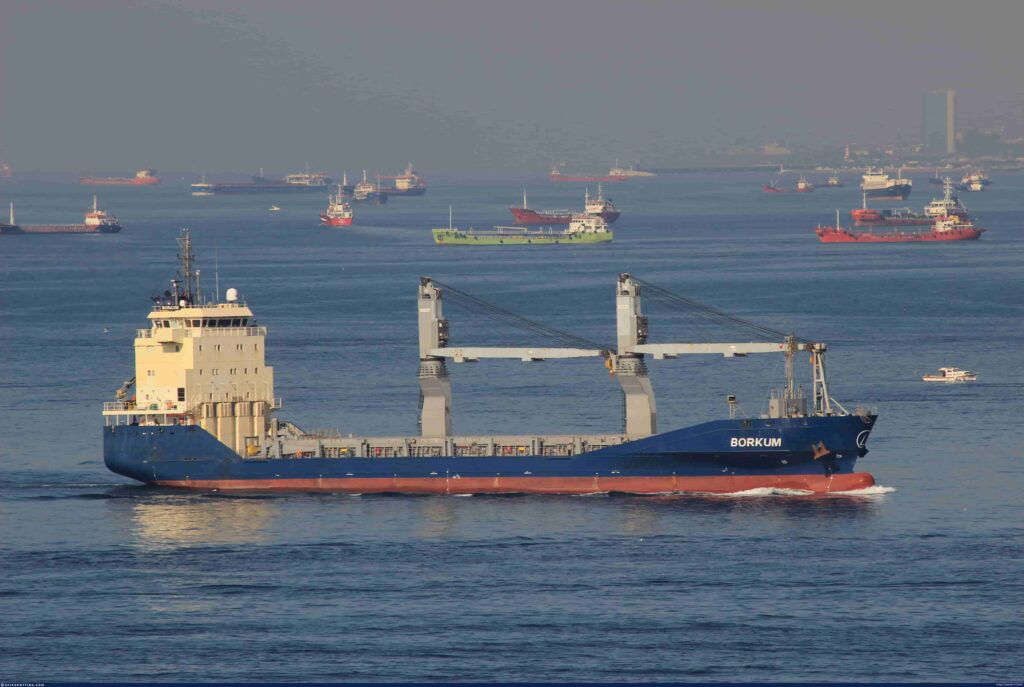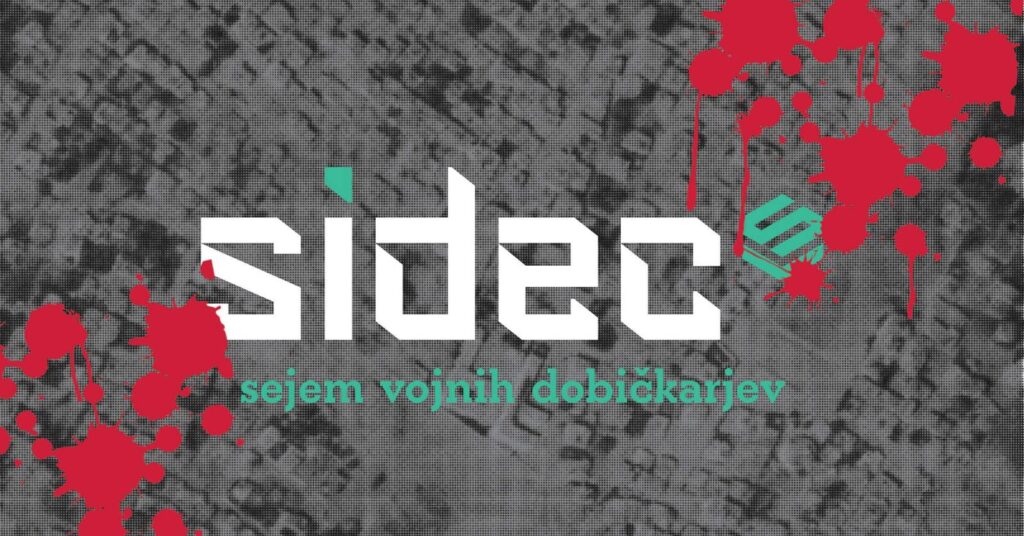slovensko | english
Besedilo je nastalo februarja 2016, torej v času, ko je bila retorika t.i. migrantske krize na enem od svojih vrhuncev tako pri nas kot širše v Evropi. Militarizacija meja, obsedenost z varnostjo in sistematična raba rasizma s strani oblasti so bili že tedaj prepoznani kot indikatorji prihajajočega režima vojne.
Dodobra ponotranjeni procesi opustošenja družbe v zadnjem času privzemajo nove prakse, nova upravičenja in nove legalne podlage. Še nedolgo nazaj smo imeli krizo, varčevalne ukrepe in zategovanje pasov ter v njihovi službi uničevanje institucionaliziranih oblik družbene solidarnosti. Medtem, ko politika oblasti v tem oziru ostaja enako krizna in to ne glede na občasno promoviran spektakel gospodarske rasti, je njena piarovska sekcija uspela vsiliti najprej nove obraze, nato pa tudi novo politično naracijo, ki je toliko bolj učinkovita, kolikor bolj agresivno opušča celo podobe politike, na katerih je v zadnjih desetletjih gradila svojo legitimnost. Ekonomska kriza se je tako umaknila migrantski krizi, na njeno mesto pa bo, ne da bi točno zmogli določiti kdaj, kmalu stopila vojna. Glede na to, da je slednja inherenten del in temeljno orodje gospostva kapitala, nas njen ponoven prihod v našo bližino in naša življenja pravzaprav ne bi smel prav nič čuditi.
Pri spremembah na ravni dominantnih političnih podob gre za še nekaj več kot zgolj za novo pregrinjalo iste politike. Dejansko živimo sredi spreminjajoče se politične krajine, toda novosti in vzrokov zanje ne gre iskati na površini podob sovraštva, ki jih elite širom Evrope tako ubrano lansirajo, temveč v potrebi teh istih elit po ozračju agresije in strahu. Ni namreč res, da ljudje, ki v čolnih, peš ali drugače iščejo svojo prihodnost v Evropi, predstavljajo varnostno grožnjo, za soočenje s katero je potrebno zaradi objektivne narave in obsega te grožnje nadgraditi sisteme nadzorovanja celotnih populacij in usmerjanja njihove pozornosti. In vendar se nadzorne točke množijo, meje med državami militarizirajo, zidovi gradijo, trgovci z rezalno žico in ostalimi tehničnimi ovirami pa uživajo v festivalu, ki ga bodo še dolgo pomnili. Vse to ob bučni propagandi vseh vrst uradnih in neuradnih akterjev, ki v en glas zlovešče vzklikajo: veljavne pravice ljudi moramo odmisliti.
Nismo šli spat v času vsesplošne družbene krize in se nato zbudili v povsem novem svetu, v času migrantske krize, kakor nas želi prepričati uradni jezik dneva. Včerajšnja kriza je še vedno tu in nas neposredno ropa pogojev za dostojanstveno življenje, nekatere med nami tudi v iskanje življenjskih priložnosti daleč stran od mest in vasi, v katerih smo odrasli ali živeli prej. Skozi to opustošenje pelje pot do razumevanja političnega pomena spektakla migrantske krize. Ljudje, njih milijon, dva milijona ali pa deset milijonov, ki tako kot vsi ostali raziskujejo možnosti življenja, niso kriza. Nekateri bežijo iz vojne, drugi (včasih tudi isti) sestavljajo rebuse in podobne dolgočasne uganke, tretji želijo nadaljevati študij botanike, četrti se morda borijo z depresijo. So marsikaj, toda nič na njih in njihovih dejanjih jih ne dela za tvorce krize. V svetu, ki še vedno trpi zaradi ogromnih družbenih stroškov vsiljenega zategovanja pasov, ki jih je ustvarilo prisilno reševanje akterjev divjega plesa finančnih specialistov, bomo pa že menda zmogli identificirati razliko med resnično krizo in njeno podobo! Tisto, kar te konkretne ljudi dela za podobe krize, je ogromna investicija oblasti EU v to, da uporabi te podobe kot bistveni element njene aktualne komunikacijske strategije v zvezi z učinki njene lastne politike opustošenja: oblast tako končno prizna dejanskost tega opustošenja, toda to naredi tako, da ga v spektakelskem saltu-mortale najprej prestavi v prihodnost, nato odgovornost zanj pripiše “migrantom”, da bi se nato ta ista oblast lahko predstavila kot edina linija obrambe pred realizacijo te grozljive podobe prihodnosti. Prav zares, tudi v svetu, ki je bil resnično postavljen na glavo, je lažno lahko moment resničnega.
Za veliko večino ljudi je razkorak med izpričanimi cilji oblasti in realnimi učinki njenih politik otipljiv na vsakem koraku. Njegovi izrazi niso zgolj redne vstajniške eksplozije naše dobe, o njem pričajo tudi uspešni volilni projekti zadnjih let, katerih jedrna propagandna strategija je bila ravno v verifikaciji tega istega razkoraka in nato kanaliziranje neizogibne sprostitve družbenih sil v isti stari projekt utrjevanja primata obstoječih političnih mehanizmov. Isti stari projekti ali ne (možnost, četudi še tako majhna, nepredvidenih preskokov vendarle obstaja), do volilnih uspehov jih poganjajo globoke in realne napetosti v družbi, ki predhajajo in preživijo vsako kampanjo tega tipa. Ni čudno, da so strateški servisi vladajoče elite prišli do spoznanja, da nadaljevanje njenega gospostva potrebuje novo ideološko prenovo in nov niz kaznivih dejanj, sicer bo kmalu samo ogroženo.
In tu na prizorišče stopi nova-stara zaveznica vseh ogroženih tiranov zgodovine: varnost. V družbi, ki jo koljejo napetosti, kjer narašča revščina, kjer ni več enega samega političnega akterja na celo najbolj obskurnih pozicijah moči, ki bi premogel kanček kredibilnosti, je potrebno politični prostor zožiti, sicer se kot vladajoči razred znajdeš v resnih težavah. Kako se tega lotiti v družbi, ki še goji spomine na stremljenja nekih drugih časov? Težke preizkušnje zgodovine so orodjarno avtoritarnih režimov bogato založile s preizkušenimi orodji: vulgarna propaganda, izredne razmere, kriminalizacija najbolj običajnih praks kot so potovanje ali solidarnost, množična zapiranja, vzpostavitev militariziranih con tam, kjer so bila prej zgolj polja in reke, vzpostavitev izdatno razčlenjenega režima hierahiziranja tistih, ki so jim zaradi te ali one osebne okoliščine odmišljene človekove in druge pravice, siromašenje jezika in trolanje. In ker sodobni režim terorja, ki ga je sedaj odkrito za svojega vzela Evropska unija, svojo prav nič poetično upravičenje črpa iz prihodnosti, ima v sebi vgrajeno potrebo po nenehni eskalaciji, katere neizogibni in uničujoči učinki bodo kmalu teror, ki je že v teku, za nazaj potrdili kot preventiven ukrep, ki je bil vedno edina možna opcijo. Sredi opustošenja neoliberalizma lastnikom sveta ne bo težko odvreči še zadnjih ostankov humanistične prtljage, ki je v prejšnjih časih po mnenju teh istih lastnikov tako omejevala razvoj produktivnih sil družbe.
“Migrantska kriza” je ime oblasti za fazo prehoda med režimom zategovanja pasov in režimom vojne. Edina pot za blokiranje tega prehoda pelje skozi ukinitev pozicije, s katere je oblast svojo naracijo in svoje postopke zmožna vsiliti kot edine veljavne, kar hkrati odpravlja tudi režim zategovanja pasov. Rečeno drugače: edino, kar lahko razkroji procese, ki širijo domeno avtoritarnega upravljanja, je ukinitev monopola kapitala nad upravljanjem s pogoji družbenega življenja.
Te besede se morda zdijo pretirane, toda takšne se zdijo zgolj zato, ker za svoje izhodišče jemljejo idejo, izbrisano iz spektakelskega jezika, da smo kot politične skupnosti ne glede na vse zmožni intervenirati in spremeniti tok zgodovine. Nismo nemočne figure na šahovnicah močnih, kot nas na vsakem koraku prepričujejo uradni govorci oblasti.
Sredi viharja je potrebno najti mir. V času vojne je edini sprejemljiv mir možen znotraj gibanja, ki ukinja pogoje vojne.

To Abolish Conditions of War
The text was written in February 2016 at the time in which the retorics of so-called migrant crisis reached one of its peaks both In Slovenia and in Europe in general. Militarization of borders, obsession with security and systematic use of racism by the authorities were already then recognized as indications of the coming regime of war.
Well interiorized processes of social devastation lately embraced new practices, new justifications and new legal bases. Not a long time ago there was crisis, austerity measures and in their service destruction of institutionalized forms of solidarity. While in this regard governmental policies stay the same, despite occasionally promoted spectacle of economic growth, the PR section of the ruling elite succeeded first to institute some new faces to the positions of power and then to impose a new political narrative, leaving behind even the mere images of politics on which its legitimacy was built in last decades. Thus economic crisis gave way to migration crisis and soon, without us being able to exactly pinpoint the right moment, it will be replaced by war. Since the latter is an inherent part and fundamental tool of the dominance of capital, the return of it in our vicinity and in our lives should not really amaze us.
There is more to changes on the level of dominant political images than just a new cloth of the same politics. We really do live in the middle of a changing political lanscape but the novelties and the reasons behind them are not to be found on the surface of images of hate that elites around Europe launch in such a concerted way. Rather they lie in the need of those same elites for an atmosphere of agression and fear in the society. It is not true that the people, which in boats, by foot or in other ways are seeking their future in Europe, represent a security threat and that to confront it it is necessary to upgrade further both the system of surveillance of the whole populations and the system that redirects their attention. And yet, the check-points are spreading, borders between states militarizing, walls are being built and merchants with razor-wire fence and other technical obstacles are enjoying the festival they will fondly remember for a long time. All this while all kinds of official and unoffical players echo each other by promoting a sinister command: the existing rights need to be ignored.
Contrary to the official discourse of the day we did not go to sleep during the general social crisis and then woke up in a completely new world, in the time of migrant crisis. The crisis of yesterday is still here, robbing us of conditions of dignified life and forcing many to seek opportunities far away from the cities and villages in which we have grown up or lived before. In order to understand the political meaning of the spectacle of migrant crisis we need to understand this devastation first. People, one million of them, two or even ten million of people that like everybody else explore possibilities of life do not constitute a crisis. Some are fleeing war, other (might be even the same) are constructing boring mind games, others still dream of continuation of study of botanics or struggle with depression. They have many talents, worries and attributes, but nothing on them and in their acts makes them the agents of crisis. For sure in a world that due to a wild dance of financial specialists still suffers from the enormous social costs of the forced austerity we should be able tell the difference between a real crisis and an image of one. What projects these particular people into the images of crisis is an enormous investment of the EU-rulers to use them as an essential element of their current communication strategy on dealing with the consequences of their own politics of devastation: the rulers thus finally acknowledge this devastation but they do this through a spectacular salto-mortale that first transfers it into the future, then attributes the responsibility for it to the “migrants” only in order that then those same rulers can present themselves as the only line of defence against the realization of this terrifying image of the future. Indeed, even in a world that has really been turned upside down the false can be a moment of the true.
The discrepancy between the stated goals of the governments of Europe (and the world for that matter) and the real effects of their policies is clearly felt by a big majority of people. Not only it is expressed through the regular insurgent explosions of the era, this discrepancy is corroborated also through many successful electoral projects of last years, whose core propaganda strategy was exactly to verify it and then to channel the inevitably unleashed social forces towards the same old project of strengthening the monopoly of the political parties and state institutions over politics. Same old projects or not (a possibility, ever so low, for unforeseable cross-overs exists after all), they are driven to electoral success by very deep and very real tensions in the society that precede and outlive any campaign of this nature. No wonder then that the think-tanks of the ruling elite came up with the conclusion that the continuation of its dominance demands both a new ideological makeover and a new set of crimes or else it might soon be challenged.
Enter new-old ally of all the insecure tyrans of history: security. In the society that is torn apart by class struggle, where poverty is on the increase, where there is not a single political player on even the most obscure position of power that would maintain a shred of credibility, the political space needs to be narrowed or else as a rulling class you might find yourslef in serious troubles. How to do that in a society that still remembers the longings of some other times? Difficult challenges of history filled the toolbox of authoritarian regimes with many well tested tools: vulgar propaganda, state of emergency, criminalization of even the most usual practices such as travelling or solidarity, mass incarcerations, establishment of militarized zones there where once were fields and rivers, establishment of extremely elaborated regime of hierarchization of access to rights and as part of it establishment of populations that are stripped of human and other rights on the basis of personal circumstances, impoverishment of language and trolling. And since the contemporary regime of terror that EU has now openly embraced its not at all poetic justification derives from the future the need of infinite escalation is built in it. Soon enough its unavoidable and destructive effects will in retrospective establish the ongoing terror as a preventive measure and an only realistic option that ever existed. In the middle of devastation of neoliberalism the owners of the world will not hesitate to discard with the last remnants of the humanist luggage that in times past, according to the mantras of the same owners, stood in the way of the development of productive forces of the society.
“Migration crisis” is the name of the official propaganda for the phase of passage from regime of austerity to regime of war. The only way to block this passage is to abolish the position from with the powers-that-be can impose their narrative and their procedures as the only valid ones, which simultaneously dismantles the regime of austerity as well. In other words: the only path towards dissolution of the processes that widen the domain of authoritarian management leads through the abolishment of monopoly of capital over management of conditions of social life.
These words might appear exagerrated but this is only so because they take as its starting point an idea, erased from the language of the spectacle, that despite all we as political collectivities are capable to intervene and to change the flow of history. We are not powerless figures on the chessboard of the mighty as the official propaganda is conducing us to believe in.
In the middle of a whirlwind it is necessary to find peace. And in times of war the only peace acceptable is the one that emerges inside the movement that abolishes the conditions of war.


